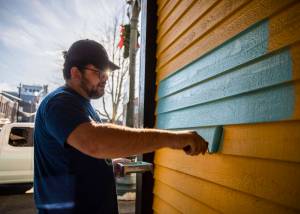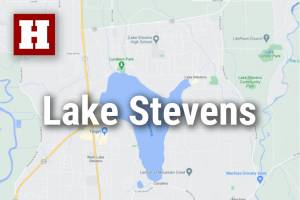Voters might decide whether to make polluters pay a new fee
Published 1:30 am Tuesday, July 3, 2018
OLYMPIA — Washington voters might get a chance this fall to put a price on pollution.
Supporters of an initiative to impose a fee on carbon emissions and spend the money on efforts to combat climate change submitted 380,000 signatures to the Secretary of State’s Office on Monday. If at least 260,000 are valid registered voters, it will qualify for the ballot.
The fee would be levied on the state’s largest emitters, such as fuel distributors. Backers say it would generate several hundred million dollars a year in revenue.
“This is about polluters paying their fair share, cleaning up the mess that has been made and setting the stage for a cleaner, healthier and more prosperous future,” said Mike Stevens, state director of The Nature Conservancy, which has provided roughly $640,000 to the campaign for Initiative 1631.
Opponents warn affected businesses will pass on the cost. That will lead to increased prices at the gas pump and in utility bills.
“This is absolutely a pocketbook issue,” said Mark Funk, spokesman for the No on 1631 campaign committee established by the Western States Petroleum Association. “We think it is a very regressive fee that will hit most squarely on middle-income and lower-income families.”
Initiative 1631 would levy a fee of $15 per metric ton of carbon emissions starting Jan. 1, 2020. Each year the amount would go up by around $2 a metric ton until the state meets prescribed targets for reduction of greenhouse gas emissions.
The measure doesn’t identify by name which corporations will have to pay. That will be determined. There are exemptions. The Boeing Co. is expected to be exempted. Also, the Trans Alta coal-fired plant is expected to be exempt as it is transitioning away from the use of coal.
Under the measure, the fees would be deposited in a new account called the Clean Up Pollution Fund. A 15-member board would be established to decide how to spend the money. It would have public and private members and its chairperson would be a full-time government employee who can hire staff.
The 38-page ballot measure calls for the money to be divided into three pots.
It requires 70 percent be invested in clean air and clean energy projects, which could be anything from expanded access to solar and wind power and promotion of zero-emission vehicles to boosting ridership on public transit. A portion of this allotment must be “dedicated to investments that directly reduce the energy burden of people with lower incomes,” the initiatives states.
A second pot with 25 percent of the funds is earmarked for clean water and healthy forests. This could include efforts to restore and protect estuaries, fisheries, and marine shoreline habitats; prepare for sea level rise and cope with impacts of ocean acidification; and restore natural floodplains.
The remaining 5 percent is to be used to improve public health.
On Monday, a contingent of supporters from Snohomish County traveled to Olympia to help deliver the signatures.
“This is an action we can take to help Washington become a leader in the transition to renewable energy,” said Marilyn Mallory, of Everett.
Since retiring two years ago from teaching math in Everett, Mallory said she has sought to help combat the debilitating effects of climate change on the environment in which her grandchildren are growing up. While she understands the measure could push up the cost of gas, it’s a small price, she said.
“We’ll be paying a little bit more now or be paying later in what happens to our health and to our forests,” she said.
Two years ago voters overwhelmingly rejected Initiative 732 which was billed as a revenue-neutral carbon tax measure. It sought to offset a new tax on carbon emissions with a reduction in business and retail sales tax rates to wind up with minimal effect on state coffers.
Many businesses didn’t fight against that measure.
“Two years ago it penciled out to a slight tax cut for most households,” said Todd Myers, director of the Center for the Environment of the Washington Policy Center. “This one is a very clear tax increase. This carbon tax is the worst of both worlds. Not only is it a massive tax increase on families, it spends more on expanding government than reducing carbon emissions.”
Initiative 732 proved divisive among those pushing the state to price carbon. An array of environmental, labor and social justice organizations either didn’t take a position on the measure, or opposed it because it failed to generate new money for pollution reduction.
This time around most of those parties are on board.
“We think it is the path forward to a prosperous and clean future,” said Stevens, of The Nature Conservancy, which didn’t take a side on I-732.
Mallory said she wasn’t involved in the 2016 debate. She said this measure is well thought-out.
“I don’t think any one of us thinks it’s perfect,” Mallory said. “It is far better than anything that’s been proposed so far and 100 percent better than doing nothing.”
Jerry Cornfield: 360-352-8623; jcornfield@herald net.com. Twitter: @dospueblos.




